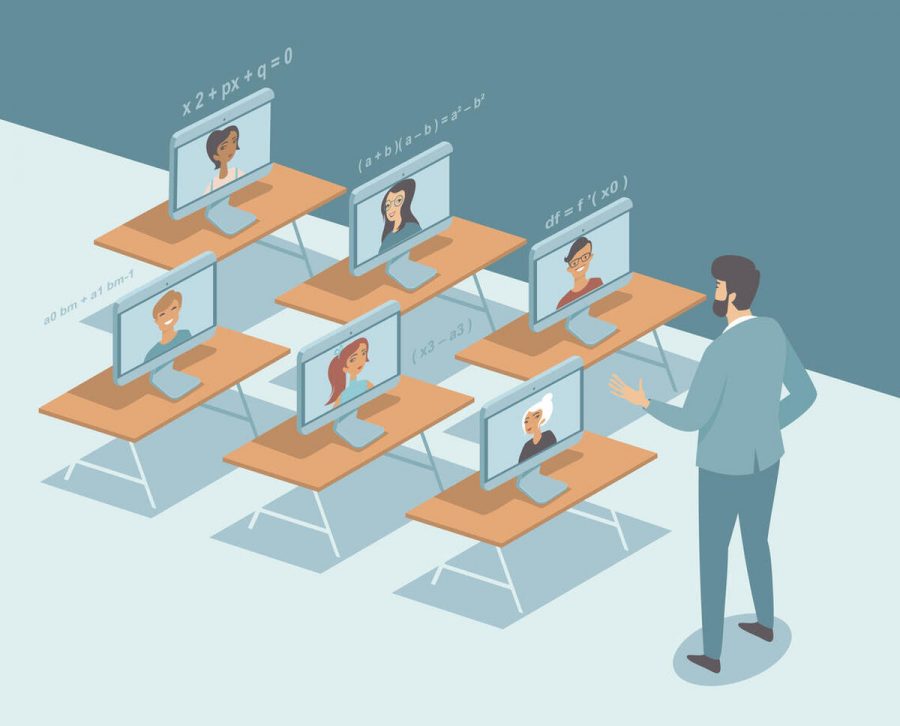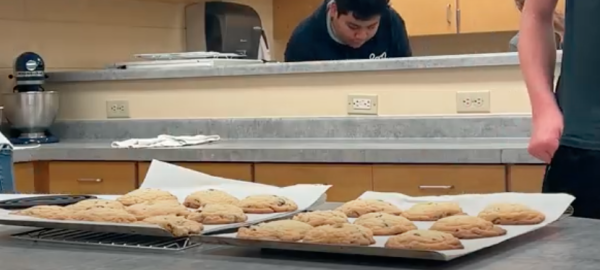Sophomores Coping with Isolation
How has quarantine and school affected mental health and how can you cope?
Online education during quarantine COVID-19 coronavirus disease outbreak concept flat vector illustration
Everyone copes with the struggles of life differently through healthy and unhealthy ways, but adding on isolation to those everyday struggles can make things so much worse. Not only do students have to deal with school and having to teach themselves certain things, they also might not be able to turn to those that see everyday for help. Some people have gone through drastic changes from who they were prior to the pandemic.
“I feel like no one’s paying enough attention to mental health,” sophomore Emily Straveler said. Even if students are focusing on this right now, they also have to stress over other things.
Nevaeh Casillas, sophomore, said that her mental health has gotten worse, “leading me to lose hobbies… I’m also sleeping all the time cause I’m just not motivated.” This is a struggle a lot of students are dealing with. They have to motivate themselves, get themselves to get up, ready, and do the work, without the help of those around them. Things can just be labeled as laziness when really there’s more going on that isn’t visible on the surface.
“I’m trying to stay active… not staying in one spot and getting sucked into a void,” sophomore David Sievert said. That void can be many things, whether it’s the place of not leaving your bed and being completely unmotivated or being able to get up, but only doing a miniscule amount of things.
I’ve been taking more time for myself… because if you don’t focus on yourself, it’s hard to focus on everything else.
— Emily Straveler
“Therapy and my friends… sometimes watching certain shows help and walks when it’s warmer,” Casillas said. Therapy isn’t available to everyone, but it’s all about being able to talk to someone or getting your feelings and thoughts out there, so journaling could be an alternative.
“Music is definitely something that’s helped me.” Sievert said.
“Either creating it or listening to music, because it gives you an outlet for your emotions,” Straveler said. There are songs for every mood, and finding the right playlists and songs to listen to or making your own music is always a healthy way to cope with the things going on.
School is a huge stressor right now, for all students. Katie Ziegler, a sophomore, prefers being in person. “I’m actually able to talk to the teacher… not have to worry about a call,” she said. “They also hold you accountable for the work.”
“Teachers expect more from us since we’re home,” Casillas said. “They think we have all the time in the world to do all these assignments.” Piling assignments and tests can be really stressful on students and put them off from actually wanting to do them, making the motivation harder and harder to find.
Even with all of these negatives, there are some positives coming out of isolation. “If you have the drive to improve yourself, you can and will… remember to keep a routine, it helps, even if it’s basic,” Sievert said. Routines can be as simple as when you wake up, grabbing something to eat or drink.
“I’ve been taking more time for myself… because if you don’t focus on yourself, it’s hard to focus on everything else,” Straveler said. Taking care of yourself can be as simple as just checking in with your emotions, making sure to drink water, and do things you enjoy.

Samantha is a sophomore, and it's her first year as a journalist. Sam loves to read, write and listen to music. When she's not doing one of those things,...















